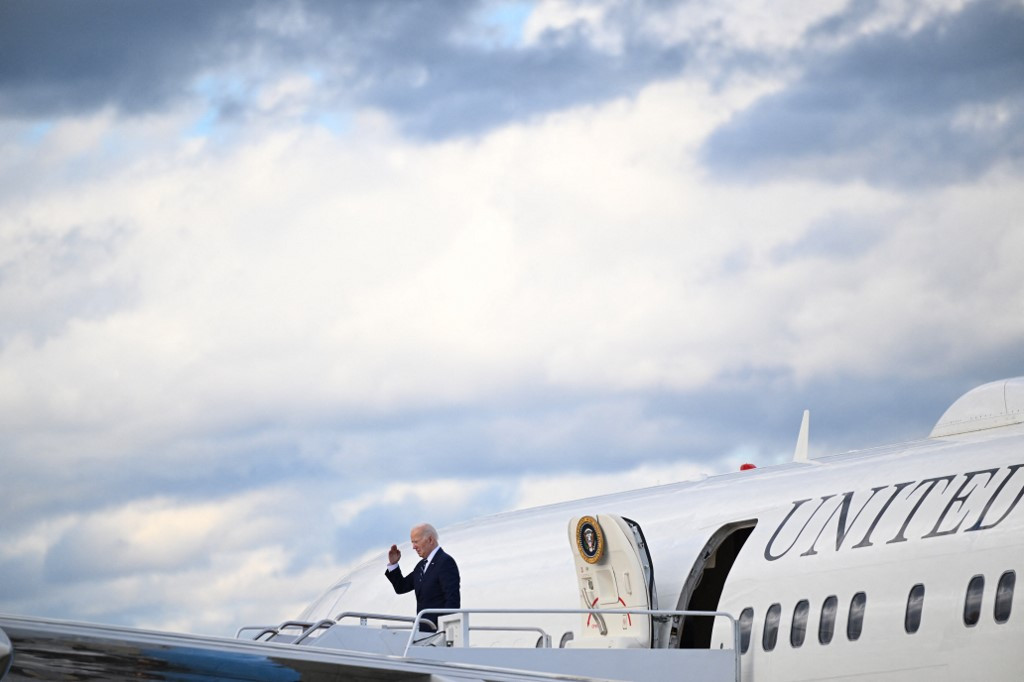The financial community has been affected by US President Joe Biden’s decision to withdraw from the presidential contest on Sunday. Now that the Republicans have won, investors are second-guessing their wagers that were based on the expectation that inflation and U.S. budgetary pressures would rise. Certain analysts argue that a greater probability of a divided government under the incoming administration could result in more balanced fiscal measures, which would be advantageous for the markets.
After Biden’s catastrophic TV debate last month, the so-called “Trump-trade,” which is predicated on the idea that former President Donald Trump’s tax policies will increase business profits at the expense of the nation’s long-term fiscal health, gained momentum. The impact was most pronounced in US government bonds. Due to increased anticipation that Republican nominee for president Trump would win back the White House, long-dated Treasury rates, which are negatively correlated with prices, briefly increased. The recent attempt at assassination and the debate performances that followed only served to reinforce this assumption.
The initial increase in rates was a reflection of investors’ fear that a Trump presidency would bring more fiscal expansion and inflationary policies, even if they immediately fell back due to indicators of economic weakness. Investors are likely to reevaluate their wagers as a result of Biden’s decision to step aside and support Vice President Kamala Harris as the Democratic nominee, casting doubt on a Trump triumph. The markets must exercise caution as they traverse this new level of uncertainty brought about by this change in political dynamics.
Reductions in interest rates and deficits are the outcomes of Trump’s pro-growth policies, according to his staff. But many players in the market think deficits will worsen even in the event of a second Biden presidency. While Biden’s withdrawal “does take some of the wind out of the sails of the Trump Trade,” according to Cameron Dawson, CIO of NewEdge Wealth in New York, markets won’t make any big swings until they have more clarity on the Democratic nominee. “That’s when we might look for the reversal of the Trump Trade and other kinds of movements,” Dawson continued.
A Reuters/Ipsos poll that closed on Tuesday found Trump had a marginal lead among registered voters, 43% to 41%, over Biden. When accepting the Republican nomination on Thursday, Trump reiterated his commitment to cutting corporate taxes and lowering interest rates. Analysts expect a Trump presidency could result in tougher trade relations, potentially leading to inflationary tariffs. The implications of these policies are far-reaching and could influence investor sentiment in the run-up to the election.
Lower tax revenues could widen the U.S. federal government’s budget deficit, which has steadily increased over the past decade, including during Trump’s previous presidency from 2017 to 2020. Although the deficit spike in 2020 was largely driven by COVID-19 government relief, many investors believe it will continue to worsen under a second Democratic administration. However, a more balanced election result could mitigate the risk of excessive fiscal stimulus expected if Republicans were to sweep Washington.
The potential for a divided government, where control of the presidency and Congress is split between the two major parties, might lead to more moderate fiscal policies. This scenario could ease investor concerns about runaway deficits and inflation, providing a more stable economic environment. Investors will be closely watching the political developments leading up to the election to adjust their strategies accordingly. The possibility of a balanced approach to governance offers a glimmer of hope for those concerned about fiscal prudence and economic stability.
As the election approaches, both parties will likely refine their economic policies to appeal to a broader range of voters. The interplay between tax policy, government spending, and trade relations will be central themes in the campaigns. For investors, the key will be navigating the uncertainties and positioning themselves to benefit from whichever party ultimately prevails. The evolving dynamics between the candidates and their proposed policies will be critical in shaping market expectations and investment decisions in the months leading up to the election.
Financial markets have already begun to react to Biden’s departure. Following the change in the political scene, traders changed their holdings, causing some volatility in the immediate aftermath. As market players considered the potential ramifications of a Harris administration, equities, bonds, and currencies all showed signs of adjustment. The way the campaigns play out and the policy stances that the candidates take will determine the long-term consequences.
With regard to social expenditures and climate change in particular, Biden’s endorsement of Harris signals that several important policies will not change. Progressive ideals have always been supported by Harris, and the party’s grassroots may become more active if she ascends to the top of the Democratic ticket. The market’s expectations regarding fiscal policy and regulatory reforms may be impacted by this leading to higher voting turnout.
Depending on the election results, there could be major changes in the energy sector in particular. In stark contrast to Trump’s focus on deregulation and the extraction of fossil fuels, Harris has backed programs meant to reduce carbon emissions and promote renewable energy. The regulatory landscape may shift significantly depending on the outcome of the election, so investors in energy companies will need to keep a careful eye on these events.
The political landscape is now significantly more unpredictable as a result of Biden’s withdrawal from the presidential contest. Based on the possible results of the election, investors are reassessing their plans with an eye toward the potential effects of shifting administrations on inflation, fiscal policy, and economic growth. In the months preceding the election, the candidates’ changing relationships and the policies they have put forward will have a significant impact on how the market anticipates events and how investors make judgments. Investors must remain nimble to properly navigate the changing landscape as the financial markets will continue to be sensitive to political changes.
If you like the article please follow on THE UBJ.
